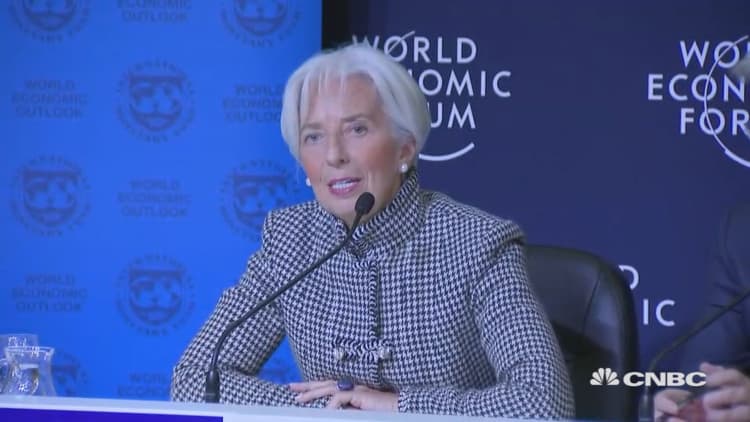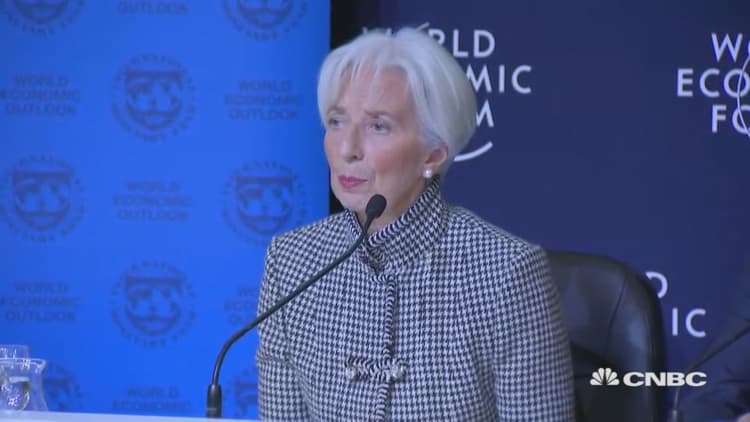
The International Monetary Fund (IMF) revised down its estimates for global growth on Monday, warning that the expansion seen in recent years is losing momentum.
The Fund now projects a 3.5 percent growth rate worldwide for 2019 and 3.6 percent for 2020. These are 0.2 and 0.1 percentage points below its last forecasts in October — making it the second downturn revision in three months.
Speaking at the World Economic Forum in Davos, the IMF's Managing Director Christine Lagarde said: "After two years of solid expansion, the world economy is growing more slowly than expected and risks are rising. But even as the economy continues to move ahead ... it is facing significantly higher risks."
In October, the IMF cut its global growth forecasts on the back of increased trade tariffs between China and the United States. It said the latest revision is due in part to carry over from last year, mentioning weakness for German auto manufacturers due to new fuel emission standards, and soft domestic demand in Italy after recent sovereign and financial risks. But the IMF also highlighted weakening sentiment in the global financial markets and a contraction in Turkey that's now projected to be deeper than anticipated.
According to the Fund, advanced economies have been on a declining path in terms of growth and this is taking place more rapidly than previously thought. These countries are forecast to grow 2 percent this year and 1.7 percent in 2020.
At the same time, there's also been a growth slowdown in emerging economies. The IMF projects a 4.5 percent growth rate in 2019, from 4.6 percent in 2018, before improving to 4.9 percent in 2020.

Triggers for further downgrades
There are also a number of flashpoints that could lead to even lower growth trajectories across the world, the IMF added in its new report on Monday, released just as the World Economic Forum in Davos, Switzerland kicks off.
"A range of triggers beyond escalating trade tensions could spark a further deterioration in risk sentiment with adverse growth implications, especially given high levels of public and private debt," it said.
These potential triggers include a "no-deal" Brexit for the U.K. and a deeper-than-envisaged slowdown in China.
The U.K.'s exit from the EU is still uncertain. Though the official deadline for departure is in less than three months, there is no clear majority among U.K. lawmakers for what this departure should look like. As the deadline approaches, many believe the chance of an exit without a formal deal is becoming more likely — where the U.K. and the EU have to rely on WTO trading arrangements.
Meanwhile in China, new figures announced Monday said that its official economic growth came in at 6.6 percent in 2018 — the slowest pace since 1990.
Lagarde also told reporters in Davos that policymakers should reduce government debt, monetary policy should be data dependent and economic reforms should aim to lift growth, including in the labor market.






